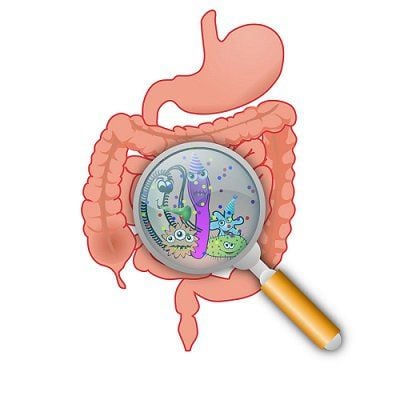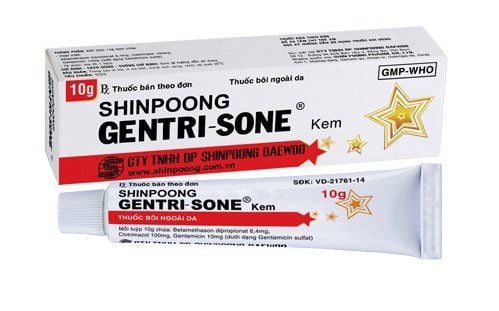The presence of white spots in a newborn's mouth is a common occurrence. However, not all parents have sufficient knowledge about this issue. This article provides useful information about white spots in newborns' mouths, offering safe and effective ways to handle them and prevent the condition from spreading.
1. What does it mean when a newborn has white spots in the mouth?
White spots in a baby's mouth often appear on the tongue, gums, inner cheeks, and lips, with symptoms such as white patches and blisters. These spots may lead to small ulcers, causing discomfort for the baby during feeding. If parents do not have proper care methods and a scientific diet for their child, these ulcers will take a long time to heal and have a high risk of infection.
Some causes of white spots in a newborn's mouth include:
- Residual breast milk in the oral cavity: White spots in a newborn's mouth can be due to residual breast milk accumulating during the first two months after birth.
- Due to the extensive use of antibiotics, the bacterial balance in the body is disrupted, leading to the appearance of white spots in the mouth.
- In some cases, white spots in the mouth or on the gums of infants and young children are caused by oral thrush or Candida Albicans infection. This condition commonly occurs in both adults and children aged 6 months and older.
- Inadequate oral hygiene in children can promote bacterial growth and result in infections. This is especially true for bottle-fed babies if the nipples are not thoroughly cleaned and sterilized.
- Hand, foot, and mouth disease: White spots in a newborn's mouth can also be a symptom of hand, foot, and mouth disease. However, in this case, the white spots will appear in multiple locations, such as the hands and feet, not just in the mouth.
- If the mother is taking antibiotics, antacids, steroids, experiencing allergies, stress, or frequently consuming sweets, she is more susceptible to fungal infections. These infections can be transmitted to the child, causing white spots to appear in the child's mouth.
The condition of white spots in the mouth is common in children, relatively benign, and will heal quickly if detected early and treated correctly. However, if not detected and treated promptly, the white spots in the mouth will spread rapidly. When the ulcers spread throughout the throat, the baby will feel uncomfortable, in pain, cry a lot, and lead to loss of appetite, skipping meals, and weight loss. More dangerously, the ulcers can spread to the larynx, throat, lungs, or stomach. Therefore, as soon as any abnormal symptoms are detected in the baby's mouth, parents should quickly take the baby to see a doctor for appropriate consultation and treatment.
2. How to treat white spots in a newborn's mouth
If the white spots in a newborn's mouth are due to milk residue or common mouth ulcers, they are not too dangerous and will heal on their own in a few days. However, if the white spots are accompanied by painful symptoms, parents can apply the following measures to help the baby feel more comfortable:
- When white spots are detected in the baby's mouth, the first thing parents should do is clean the baby's mouth thoroughly to remove bacteria. It is best to gently clean the tongue (for newborns) and brush the teeth (for older children) regularly, twice a day.
- Wash the baby's clothes, clean the nipples, toys, and items that the baby frequently comes into contact with to prevent bacterial infection.
- Provide soft, cool foods such as porridge and soup to minimize irritation.
- Do not give the baby hard, salty, or hot foods as they can worsen the ulcers and make them harder to heal.
- For infants, encourage breastfeeding or formula feeding. For older children, provide filtered water or fruit juice.
When infants and young children develop white spots in their mouths, it is crucial to follow scientific home care methods to prevent the ulcers from worsening. Additionally, parents should take their child to a doctor for diagnosis and appropriate treatment of the white spots. A specialist will prescribe suitable medication for the child's condition and guide parents on effective care practices.
In summary, white spots in the mouth are a common and relatively benign condition in children, typically resolving quickly with early detection and proper treatment. Therefore, when a child experiences this condition, parents should promptly take the child to the hospital for examination and advice on the most appropriate treatment.
To arrange an appointment, please call HOTLINE or make your reservation directly HERE. You may also download the MyVinmec app to schedule appointments faster and manage your reservations more conveniently.













